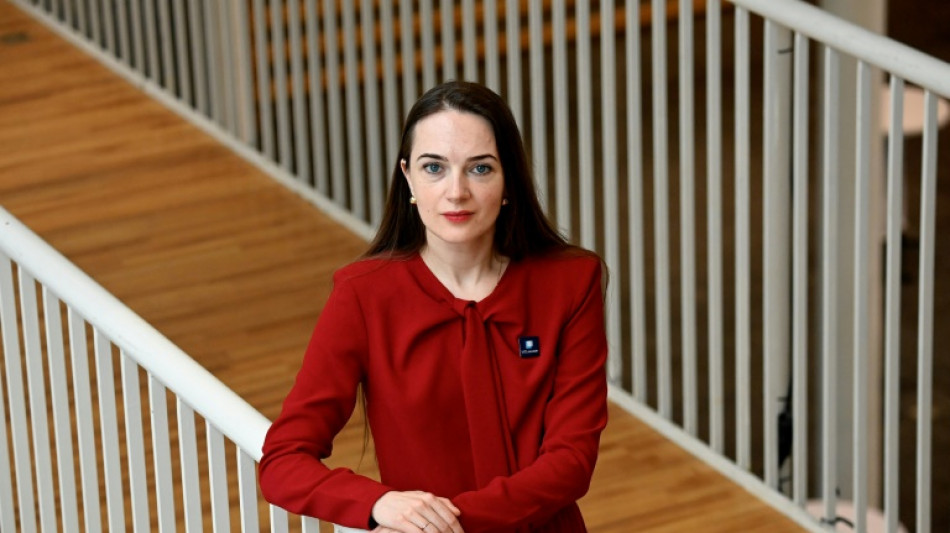

Ukrainian Nobel winner demands justice for Russian 'war criminals'
Oleksandra Matviichuk, a Ukrainian rights activist whose NGO was co-winner of last year's Nobel Peace Prize, called Thursday for the world to "hold Russian war criminals accountable," in an interview with AFP.
"We must break the circle of impunity," she said, urging the United Nations and the European Union to back Kyiv's call for a special tribunal able to judge top Russian officials all the way up to President Vladimir Putin.
While acknowledging that getting a majority of UN member countries behind that goal was a "hard task," Matviichuk said it was indispensable for any post-war peace that might follow the end of the conflict in her country.
"There will not be sustainable peace without justice," she noted.
Her demand came nearly a year after Russia's February 24, 2022 invasion of Ukraine, which followed its 2014 annexation of Crimea and support for pro-Russian separatists in Ukraine's east.
She was speaking at Belgium's University of Louvain just ahead of receiving an honorary doctorate there, alongside Palestinian filmmaker Elia Suleiman and Adelle Blackett, a law professor at Canada's McGill University.
The trio were being recognised for the fight for civil rights and a fairer society.
- 'Everyone's rights protected' -
The Ukrainian NGO that Matviichuk runs, the Center for Civil Liberties, last year shared the Nobel Peace Prize with the Russian rights organisation Memorial and an imprisoned Belarusian pro-democracy activist, Ales Bialiatski.
Matviichuk's Center for Civil Liberties, founded in 2007, has campaigned for rule of law and democracy in Ukraine.
That struggle has only become harder with Russia's military offensive, but it has not been forgotten, she said -- to the contrary, the values the NGO campaigns on are central to Ukraine's efforts to one day join the European Union.
"We have two main tasks: to survive and to resist, and to continue our democratic path," Matviichuk said.
"We're still a nation in transit, and we can't concentrate energy only on this reforming path -- we have in parallel the war with Russia.
"But after the large-scale invasion started, we still have no luxury to concentrate only on one goal, we have to fight for our survival. And we have to move on to join to European Union," she said.
Ukraine's ambition to become an EU member state could take many years, EU officials say, though some EU neighbours of Ukraine are lobbying for a faster timeline.
Becoming part of the European Union means becoming part of the "European civilisation space," Matviichuk said.
Joining the EU would mean "we will have a chance to build our country where the rights of everybody are protected," she said.
A.C.Netterville--NG



